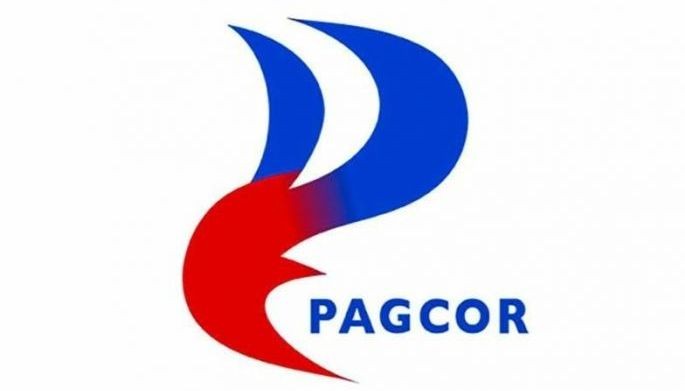Gambling
Over 40 more online gaming operators issued licenses

MANILA, Philippines — On top of the 40 licenses the Philippine Amusement and Gaming Corp. (PAGCOR) had issued to what used to be called Philippine offshore gaming operators (POGOs) and recently rebranded as internet gaming licensees or IGLs, the state gaming regulator and operator has also issued licenses to more than 40 online gaming operators for electronic gambling targeted at Filipino netizens.
PAGCOR’s Electronic Gaming Licensing Department recently issued its list of accredited or licensed gaming system service providers that had reached up to 34 operators as of June 5.
These providers are licensed to offer a range of online betting games, such as e-casino, e-bingo, sports betting and specialty games.
The Electronic Gaming License Department noted that of the 34 licensees, 13 have yet to commence commercial operations.
Aside from the 34 e-gaming licensees, PAGCOR also has 10 “authorized online/remote gaming platform” operators that are different from gaming system service providers or e-casino operator.
The 10 are mostly online casinos of the country’s giant integrated resort casino operators or major hotel-based casino operators such as Bloomberry Resorts and Hotels Inc., the operator of the Solaire Resort and Casino in PAGCOR Entertainment City in Parañaque City; Travellers International Hotel Group Inc., which operates the Newport Resorts World Manila in Pasay City; Stotsenberg Leisure Park and Hotel Corp., which operates the Casino Plus at Hotel Stotsenberg in Clark Freeport Zone, Pampanga; Thunderbird Pilipinas Hotels & Resorts Inc., which operates the Thunderbird Resorts and Casinos in Poro Point Freeport in La Union and Eastbay Resorts Inc., which operates the Thunderbird Resorts and Casinos in Binangonan, Rizal.
Also, among the 10 authorized online gaming platform operators are Tiger Resort Leisure and Entertainment Inc., operator of Okada Manila also in PAGCOR Entertainment City; listed MJC Investments Corp., the operator of Winford Resorts & Casino Manila in Santa Cruz, Manila; Hann Philippines Inc., operator of the Hann Casino and Resort in Clark, Pampanga and BB International Leisure and Resort Development Corp., operator of the Midori Clark Hotel and Casino also in Clark, Pampanga.
The only non-casino operator on the list is AB Leisure Exponent Inc., operator of bingo parlor chain Bingo Plus, and subsidiary of listed gaming operator Digiplus Corp., that also operates the Midas Hotel and Casino on Roxas Boulevard in Pasay City.
POGOs or IGLs are mainly foreign-owned gaming operators that cater to offshore or overseas gamblers.
The proliferation of online games in Philippine cyberspace recently started to draw an outcry on social media platform TikTok, particularly among married Filipina women, who have micro-vlogged about the huge gambling debts racked up by their husbands whom they have discovered to be addicted to online gambling.
Local research and intelligence firm Capstone-Intel Corp. has called on PAGCOR to reconsider issuing licenses to more online gaming operators, with Capstone-Intel Corp. chief executive officer Nicasio Conti urging the state gaming regulator and operator to carefully consider the substantial negative effects of gambling before issuing additional IGL licenses.
Citing the experience in other countries and recent Supreme Court (SC) rulings, Conti emphasized the potential social, economic and legal ramifications of expanding online gambling accessibility.
“Gambling addiction is a severe issue that can lead to personal and familial destruction,” he said.
“Countries like Singapore and Japan maintain stringent controls over gambling to protect their citizens from the associated social ills (that) include increased crime rates, family breakdowns and significant public health challenges,” he added.
In Singapore, despite the presence of Marina Bay Sands and Resorts World Sentosa, the government remains cautious about expanding gambling opportunities due to the substantial social costs.
Japan, while allowing pachinko, prohibits most forms of gambling to preserve social stability and public health.
Conti, a lawyer, highlighted that in the United States, states like Nevada and New Jersey have seen the duality of gambling’s impact: economic benefits marred by addiction and related crimes.
Australia’s high per capita gambling losses and the United Kingdom’s rising problem on gambling rates have prompted stricter regulations and greater support services.
“The experiences of these countries should serve as a cautionary tale,” Conti warned.
“The economic benefits of gambling are often outweighed by the social and economic costs, including lost productivity, increased demand for social services and the financial burden on health care systems due to addiction-related issues,” he added.
PAGCOR earlier said that offshore gaming operations brought in P3.15 billion or just 4.31 percent of their total gaming revenues of P79.37 billion last year, after the Philippine gaming industry achieved record gross gaming revenues or P285.27 billion which, according to Tengco, already surpassed pre-pandemic revenue levels.










